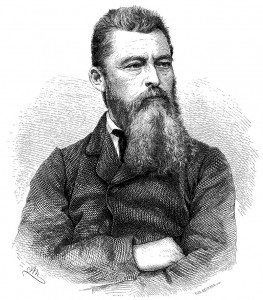As the two men continue to question S, he finally begins to convince them that he is telling the truth and that he really doesn’t serve Vevoda, though one of them is still suspicious. Interestingly, it is when S loses his patience and snaps at the men that they believe him. This shows that they would not expect one of Vevoda’s men to speak in that way, implying that Vevoda’s men tend to be reserved and quiet to avoid attention.
S also learns more about the strange world in which he finds himself. He learns that Vevoda is a cruel man-“To men like Vevoda, kindness is a resource to be exploited, like coal or zinc.” (81). He also learns that the Zapadi Three are important, as the men express shock when S confesses that he has not heard of them.
In the margins, Jen mentions a man named Wechsler. Wechsler was an anarchist in the novel, but in the real world, David Wechsler was a psychologist who developed an intelligence test for adults and children. Naming a radical anarchist after such a man shows Straka’s respect for the anarchist cause, and implies that Straka considered such men to be intelligent.
The other man Jen mentions in her note is Feuerbach, another anarchist who is one of the potential Straka candidates. In the real world, Ludwig Feuerbach was a German philosopher who is best known for writing a book entitled The Essence of Christianity, an attack on the religion. Since Feuerbach is a candidate for being Straka himself, this could elude to Straka’s religious beliefs.


You must be logged in to post a comment.